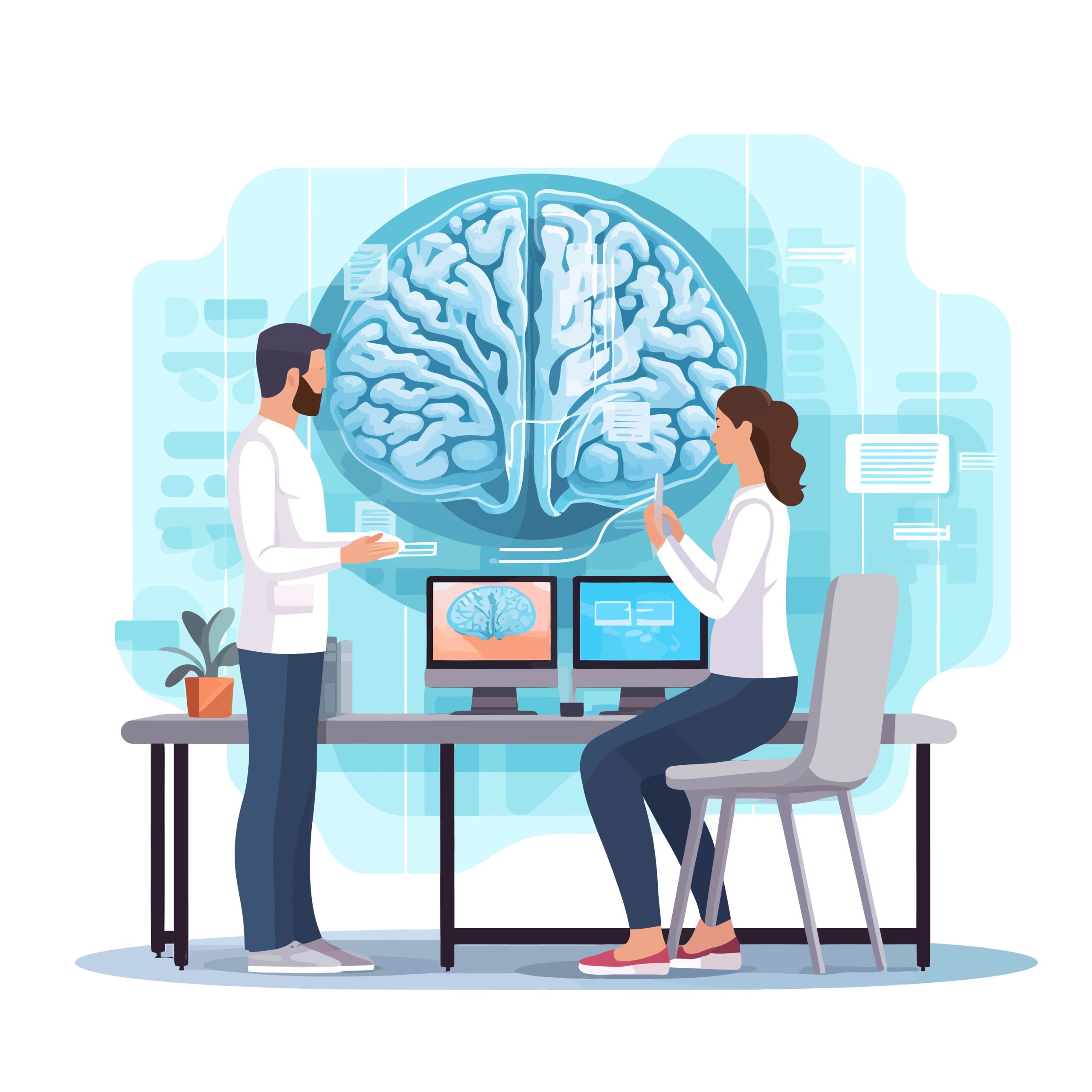Mindful Machines: How AI is Transforming Mental Health Diagnosis, Therapy, and Support Systems” explores the intersection of artificial intelligence (AI) and mental health, focusing on its role in improving diagnosis, therapy, and support for individuals dealing with mental health issues. Here’s an overview of the key themes covered in this exploration:
AI-Powered Diagnosis:
- Early Detection: Utilizing AI algorithms to analyze various data sources, including electronic health records, social media activity, and wearable sensor data, to identify early warning signs and risk factors for mental health disorders, enabling timely intervention and prevention strategies.
- Diagnostic Support: Assisting clinicians in diagnosing mental health conditions through AI-driven decision support systems, symptom assessment tools, and differential diagnosis algorithms that analyze patient data and provide personalized recommendations for treatment and care.
AI-Driven Therapy:
- Virtual Therapy Assistants: Developing AI-powered chatbots, virtual agents, and conversational interfaces that offer on-demand psychotherapy sessions, emotional support, and coping strategies for individuals experiencing mental health challenges, supplementing traditional therapy approaches.
- Personalized Treatment Plans: Tailoring therapy interventions and treatment plans using AI-driven predictive analytics, machine learning models, and behavioral insights that adapt to individual preferences, needs, and progress over time, optimizing therapeutic outcomes and engagement.
Remote Monitoring and Support:
- Remote Patient Monitoring: Leveraging AI-enabled telemedicine platforms, wearable devices, and mobile apps to remotely monitor patients’ mental health status, medication adherence, and treatment response, enabling proactive intervention and support from healthcare providers.
- Crisis Intervention: Implementing AI-driven crisis intervention systems, suicide prevention hotlines, and mental health crisis response teams that use real-time data analysis and risk assessment algorithms to identify and prioritize individuals in crisis and provide timely support and intervention.
Digital Therapeutics:
- AI-Enhanced Interventions: Integrating AI algorithms and digital therapeutics platforms into evidence-based interventions, cognitive behavioral therapy (CBT) programs, and mindfulness-based stress reduction (MBSR) techniques to enhance treatment effectiveness, scalability, and accessibility.
- Behavioral Insights: Analyzing behavioral data and usage patterns from digital therapeutics apps and online support communities to gain insights into users’ mental health needs, engagement levels, and preferences, informing the design of future interventions and support systems.
Ethical and Regulatory Considerations:
- Data Privacy: Safeguarding individuals’ privacy and confidentiality in AI-driven mental health interventions, including ensuring secure data storage, encryption protocols, and informed consent procedures for collecting and using sensitive health information.
- Bias and Fairness: Mitigating algorithmic bias, discrimination, and disparities in AI-driven mental health technologies, ensuring fairness, transparency, and accountability in decision-making processes, particularly in diagnosis, treatment recommendations, and risk assessment.
- Regulatory Oversight: Establishing regulatory frameworks and quality standards for AI-driven mental health solutions, including guidelines for clinical validation, evidence-based practice, and adherence to ethical guidelines and professional standards in mental healthcare delivery.
User Experience and Acceptance:
- Usability and Accessibility: Designing AI-driven mental health technologies with a user-centered approach, considering factors such as user experience, accessibility, and inclusivity to ensure that interventions are engaging, intuitive, and culturally sensitive for diverse populations.
- User Acceptance: Understanding user attitudes, preferences, and concerns regarding AI-driven mental health interventions through user feedback, usability testing, and stakeholder engagement, fostering trust, acceptance, and adoption of technology-enabled mental health solutions.
Collaboration and Integration:
- Interdisciplinary Collaboration: Promoting collaboration between AI researchers, mental health professionals, technologists, and end-users to co-design, implement, and evaluate AI-driven mental health interventions that are evidence-based, clinically effective, and user-friendly.
- Integration with Healthcare Systems: Integrating AI-driven mental health solutions into existing healthcare systems, electronic health records (EHRs), and care delivery workflows to facilitate seamless coordination, information sharing, and continuity of care for individuals with mental health needs.
Conclusion:
“Mindful Machines: How AI is Transforming Mental Health Diagnosis, Therapy, and Support Systems” highlights the potential of AI to revolutionize mental healthcare delivery, offering innovative solutions for diagnosis, therapy, and support that are personalized, accessible, and scalable. By leveraging AI-driven technologies responsibly and ethically, stakeholders can harness the transformative power of AI to improve mental health outcomes, reduce stigma, and enhance the well-being of individuals and communities affected by mental illness.



